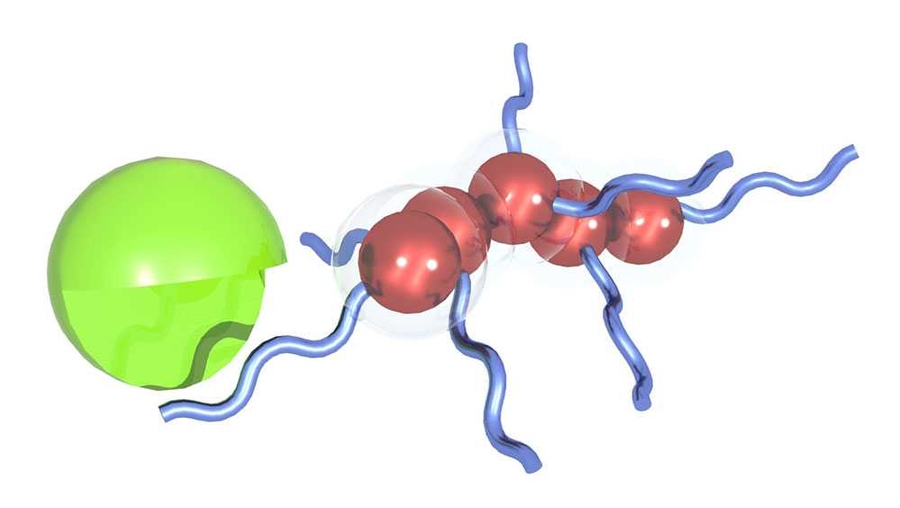Research published by teams at Massachusetts Institute of Technology (MIT) and Beth Israel Deaconess Medical Center in Nature Biotechnology 16/12/2012 – have claimed to have found means to diagnose cancer tumors earlier within a patient’s urine. The methodology pioneered seeks to investigate specific proteins secreted by cancer cells, which may circulate in the bloodstream. Unfortunately, quantifying such cancer bio-markers is extremely low and so detection can prove to be difficult. However, smart use of metallic nanoparticles can habour a medium for earlier detection. Thus, the researchers at MIT, led by Sangeeta Bhatia, have developed nanoparticles that can ‘home’ onto a tumor and interact with the cancer proteins to produce thousands of bio-markers.
In addition, it is claimed by Bhatia – a John and Dorothy Wilson Professor of Health Sciences and Technology and Electrical Engineering and Computer Science at MIT as well as a member of the MIT’s David H. Koch Institute for Integrative Cancer Research – the following:-
- The nanoparticle bio-marker amplification technique can also monitor specific disease progression pathways and thereafter track how tumors may respond to different treatment regimes
- Bhatia continues to state “There is a desperate search for bio-markers, for early detection or disease prognosis, or looking at how the body responds to therapy,”
- Search for reputable cancer tumor bio-markers is more complicated, because genomic studies tend to reveal that majority of cancers, such as breast cancer, are actually groups of several diseases with different genetic signatures
Amplification of cancer signals –
It is known that cancer cells produce many proteins not typically found in healthy cells. However, considering the potency of cancer cells the associated proteins are often so diluted in the bloodstream that they are nearly impossible to detect. For example, nowadays even with the highest quality cancer bio-markers and technology – it can still take almost 8-10 years to find an ovarian tumor – as claimed by a recent study from Stanford University.
Alternatively Bhatia’s laboratory has been working on nanoparticles and how they can be exploited towards the detection of cancer bio-markers. Originally conceived as imaging agents for tumors the particles can also interact with enzymes known as proteases, which can cleave bulky proteins into smaller units. The researchers scope of innovation consisted in coating the(ir) nanoparticles with peptides to enable for targeting of several MMP proteases. Please Note cancer cells often produce large quantities of protease (MMP). Such treated nanoparticles then accumulate at cancer tumor sites – aggressively travelling through leaky blood vessels that typically surround tumors. Thereafter the proteases attract hundreds of peptides from the injected nanoparticles – enabling for release into the bloodstream. The peptides would then quickly accumulate in the patient’s kidney and be excreted in his/her urine – ideal for intense bio-analysis by different mass spectrometry (MS) techniques.


Unique bio-signatures –
To make their bio-marker readings as accurate as possible, the researchers customised the(ir) nanoparticles to resonate 10 different peptides – each cleaving to a different one of the dozens of MMP proteases. The peptides employed are different in size – making it possible to identify them with MS. The means for distinctive identification should enable researchers to signature the different types of tumors The MIT study undertook tests of the(ir) nanoparticles on mice for early signs of colorectal cancer and thereafter monitor the progress of liver fibrosis. Original article available here
Interestingly DCN Corp’s Missionary Aim is to create an internationally recognised nano-particulate DNA diagnostics bio-kit via its novel 9c protocol and it thereafter revealing a ‘multi-faceted’ nano bio-sensor strip, which cannot just detect early signs of cancerous tumors but different cardiovascular conditions and/or diseases via a patient’s blood, saliva, urine specimen. In addition, the system of nano lab-on-a-chip analysis would be less intrusive when compared to the methodology adapted by the MIT researchers. If you or your colleagues are interested in making the above a reality – please ensure to contact the company as soon as practicably possible.

